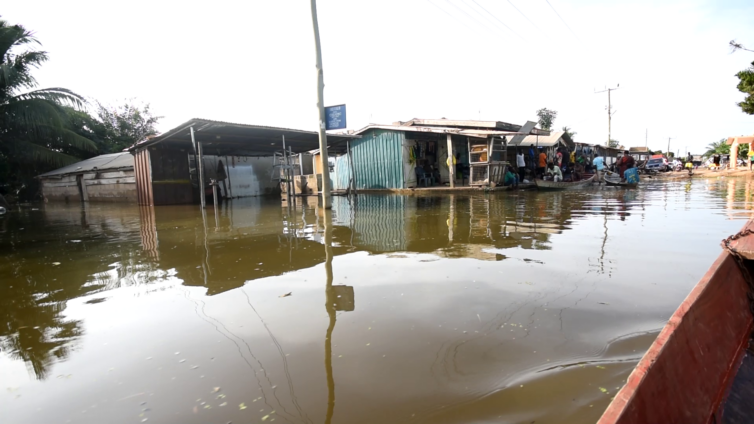This letter article is situated within the context of the flooding that began on October 9, 2023, which is associated with VRA standard operations of spilling excess water to safeguard the integrity of the Akosombo and Kpong Hydropower dam.
On Wednesday, October 5, 2022, hundreds of houses were reported submerged at Oblogo, Tetegu, New Weija, SCC, Tatop, Sampa valley parts of Top Town and American Farm at Ngleshie Amanfro following the opening of the Spill gates of the Weija Dam by the Ghana Water Company Limited (GWCL) which caused the destruction of vehicles, home appliances and personal effects running into millions of Ghana Cedis.
A year on, on October 9, 2023, an even stronger flooding is reported at downstream communities specifically, South, Central and North Tongu, Shai Osudoku, Anlo, Ada East and Asuogyaman after the double-stage spillage of the Akosombo and Kpong Hydropower facilities by the Volta River Authority (VRA) which effect on life and property is not dissimilar from the GWCL spillage in 2022.
In order to strengthen infrastructure monitoring for flood risk reduction in the face of changing global environment associated with climate variability, a three-step solution is recommended.
One strengthened collaboration between the Water Resources Commission (WRC), The Ghana Meteorological Agency (GMET) and The Hydrological Services Authority (HSA) to build an Integrated Hydro Informatics Management System (IHIMS) on future Climate Scenario Models and System Dynamics for qualitative and quantitative monitoring and data analysis.
This requires a basin-wide installation of stream gauge networks and sensors. Then two data exchange between upstream riparian regions and their activities on the system, then three granting water infrastructure institutions system access.
A Flood Early Warning System could be a sub-component within the larger IHIMS. This will strengthen our flood emergency preparedness through the collection of quality data, analysis and forecasts to minimize the scale of damage going forward.
We hope the floods will go away but experience has shown that it is here to stay. So, we need to strengthen our adaptability for an improved disaster management.
Thank you.
About the author; Ing. Mark Benyah is a Water Resources Development and Management Consultant. Email: nakmaben@gmail.com
Latest Stories
-
Bawumia joins thousands in Kumasi for burial prayers for Ashanti Regional Imam
3 hours -
Blue Gold Bogoso Prestea Limited challenges government actions in court
3 hours -
Verdicts due for 51 men in Pelicot mass rape trial that shook France
3 hours -
Syria not a threat to world, rebel leader Ahmed al-Sharaa tells BBC
3 hours -
Patrick Atangana Fouda: ‘A hero of the fight against HIV leaves us’
4 hours -
Trinity Oil MD Gabriel Kumi elected Board Chairman of Chamber of Oil Marketing Companies
4 hours -
ORAL campaign key to NDC’s election victory – North America Dema Naa
5 hours -
US Supreme Court to hear TikTok challenge to potential ban
5 hours -
Amazon faces US strike threat ahead of Christmas
5 hours -
Jaguar Land Rover electric car whistleblower sacked
5 hours -
US makes third interest rate cut despite inflation risk
5 hours -
Fish processors call for intervention against illegal trawling activities
6 hours -
Ghana will take time to recover – Akorfa Edjeani
6 hours -
Boakye Agyarko urges reforms to revitalise NPP after election defeat
7 hours -
Finance Minister skips mini-budget presentation for third time
7 hours

